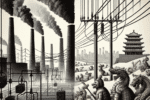New York, New York – Cancer deaths have seen a significant decline of nearly one-third since 1991, according to recent statistics reported by the American Cancer Society. Despite this positive trend, the pervasive fear of cancer persists among the population. Experts attribute this enduring anxiety to the increased openness in discussing health issues, including cancer, which has led to reduced stigma but also heightened awareness through prominent cases like those of King Charles, Princess Catherine, and actress Olivia Munn.
While advancements in medical treatments have improved survival rates for various types of cancer, the fear surrounding the disease remains deeply ingrained in people’s minds. Cancer is often perceived as a formidable opponent – the “emperor of all maladies,” as described by oncologist and writer Siddhartha Mukherjee. This perception, fueled by a systematic review of attitudes, contributes to the ongoing anxiety surrounding cancer, despite its decreasing mortality rates compared to other diseases like cardiovascular conditions.
Historically, cancer was viewed as a death sentence, but with modern treatment methods, the outlook has significantly improved. Testicular cancer, for example, now boasts a five-year survival rate of 95 percent, marking a substantial increase from previous decades. Similarly, breast cancer survival rates have seen notable improvements, indicating the progress made in combating the disease.
In light of these advancements, it is essential for individuals to educate themselves about their specific type of cancer to alleviate fears and make informed decisions. Immunotherapies and other medical treatments have emerged as less burdensome alternatives to traditional therapies, diminishing prevalent side effects like nausea, vomiting, and hair loss.
Moreover, experts recommend strategies like mind-body interventions, open communication about anxiety, seeking support from therapists, social workers, and religious leaders, and acknowledging the strength in asking for help during challenging times. By addressing the root causes of cancer fear and embracing available resources, individuals can navigate their cancer journey with greater resilience and empowerment.
Ultimately, the profound impact of cancer fear should not overshadow the importance of early detection and proactive healthcare management. As highlighted by Beth Rosenberg, a retired cardiologist, allowing fear to dictate medical decisions can have dire consequences, underscoring the urgency of addressing anxieties surrounding cancer promptly and efficiently.










